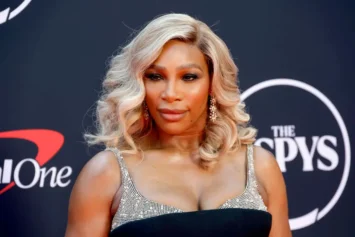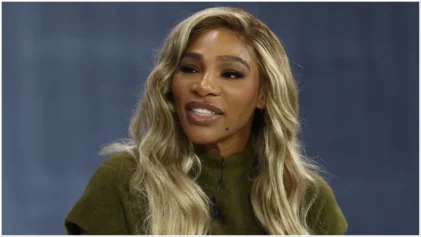In case you missed it, Serena Williams won her 20th singles Grand Slam title over the weekend at the French Open, a feat that adds to her legacy as the most dominant athlete on the planet. No one—male or female, team sport or individual sport—can claim the sustained success she has over her remarkable career.
In a world where athletic accomplishment is layered with corporate piggy-backing, it is a little more than curious that Williams is not the reigning women’s tennis endorsement darling.
That title goes to none other than Maria Sharapova, the Russian tennis star who has not had nearly the amount of success as Serena, and yet last year made twice as much money in endorsements.
Let’s break it down to try to figure this out: Serena is beautiful, with a glowing dark brown complexion and a beautiful smile. She’s physically fit. She’s smart and engaging and, some diva moments notwithstanding, is as likable as you can get. And she has 33 major titles, including the 13 doubles Grand Slam championships she earned with big sister Venus.
Serena would seem a corporation’s ideal representative.
Meanwhile, Sharapova is attractive in her own right—tall, thin and blonde. She’s had her diva moments, too, but comes across as a pleasant person overall. She has five Grand Slam titles, which is four times less than Serena Williams.
Williams’ career WTA earnings: $69,528,369—almost double that of No. 2 Sharapova at $35,059,407.
But, according to Forbes, Sharapova made $22 million off the court last year compared to Williams’ $11 million.
Surely, Serena Williams is not complaining— $11 million is quite a purse. But the disparity points to racial profiling and the warped definition of beauty that pushes companies to their decisions on representatives.
When comparing the two players, it’s hard to fathom that a bias based on race has not come into play. When Magic Johnson was the best player in the NBA, Larry Bird did not lead the league in endorsements.
When Sugar Ray Leonard was boxing’s best, Gerry Cooney did not get the biggest endorsements. When Tiger Woods, pre-divorce, was dominating golf, Phil Mickelson did not top the endorsements leaderboard.
So why is Serena Williams trailing in this area when she’s not only the best woman’s tennis player, but the most dominant athlete, regardless of sport?
Head-to-head, Serena Williams, 33, has beaten Sharapova 17 of 19 times. Her sister, Venus, has more Grand Slam titles than Sharapova with seven.
Further, Williams’ story of growing up in troubled Compton, Calif. learning the game from her father on tattered tennis courts, coming behind her sister who had dominated the game before her, losing an older sister to murder, battling racists who booed her during a match in California, is the kind of redemption and overcoming-the-odds logline that could be considered fairy tale if it were not really her life.
In the end, though, it comes down to the perception of race and beauty. Around the world, the negative propaganda machines about who Black people are still resonates with many, even in this advanced time of other-worldly technology.
It is that technology also that streams worldwide via social media many of the ridiculous behaviors and acts that taint the African-American community. Sadly, to many, those images are more believable and influential than the goodwill and humanity that overwhelmingly represents who Black people are.
So, the corporate bias takes into account what their customers consider safe and beautiful and make their calls with that in mind.
On beauty, the perception that Black is beautiful is stronger than ever among Blacks. The horrid killings of Black males at the hands of law officers have, to some extent, forced the community to look at itself and recognize the value of Black life. In doing so, the recognition that Black is beautiful has come with it.
But not everywhere, apparently. Black women have adorned mainstream magazine covers and non-Black women have turned to making cosmetic changes to their lips and hips to resemble African-American beauty.
Still, when it comes to Serena Williams—a strong-bodied, dark-skinned woman who has taken stances on racial issues—against the ubiquitous global perception of beauty—thin, blonde hair, blue eyes—Sharapova wins.
No one is feeling sorry that Serena Williams earned half of what Sharapova made in endorsements last year. But it speaks to a sorry state of perception on beauty and likability.




